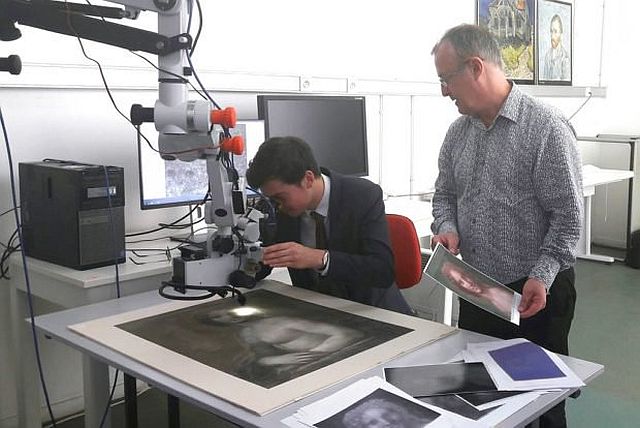A nude drawing that bears a striking resemblance to the Mona Lisa masterpiece may have been done by Leonardo da Vinci, experts told AFP.
Scientists at the Louvre in Paris, where his masterpiece is held, have been examining a charcoal drawing known as the “Monna Vanna,” which had been attributed to the Florentine master’s studio.
The large drawing has been held since 1862 in the huge collection of Renaissance art at the Conde Museum at the palace of Chantilly, north of the French capital.
Curators from the museum believe that after a month of tests at the Louvre the “drawing is at least in part” by Leonardo.
“The drawing has a quality in the way the face and hands are rendered that is truly remarkable. It is not a pale copy,” museum curator Mathieu Deldicque told AFP.
“We are looking at something which was worked on in parallel with the Mona Lisa at the end of Leonardo’s life,” he added.
“It is almost certainly a preparatory work for an oil painting,” he added, with the obvious inference being that it is closely connected to the Mona Lisa.
The hands and body, Deldicque said, are almost identical to Leonardo’s inscrutable masterpiece.
The drawing is almost the same size as the Mona Lisa, and small holes pierced around the figure point to the fact it may have been used to trace its form onto a canvas, he argued.
Louvre conservation expert Bruno Mottin confirmed that the drawing dates from Leonardo’s lifetime at the turn of the 15th century and that it was of a “very high quality.”
Tests, he told the Parisien newspaper, had already revealed that it was not a copy of a lost original.
But he said that “we must remain prudent” about definitively attributing it to Leonardo, who died in France in 1519.
“The hatching on the top of the drawing near the head was done by a right-handed person. Leonardo drew with his left hand.
“It is job that is going to take some time,” he added.
“It is a very difficult drawing to work on because it is particularly fragile.”
But Mottin said that they hoped to pin down the identity of the artist within two years, in time for an exhibition at Chantilly to celebrate the 500th anniversary of Leonardo da Vinci’s death.
